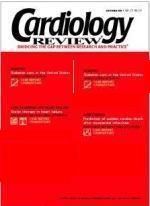Publication
Article
Cardiology Review® Online
Herbs and science the legend continues
Dr. Cassetta and colleagues (page 35) have presented a concise overview of many commonly used herbs with a focus on their cardiovascular effects. It is quite remarkable how the widespread use of these therapies in our society contrasts with the paucity of well-designed trials and data in the literature on efficacy. The studies that have been done are mostly retrospective and observational. Even the Commission E document (compiled under the auspices of the German government), which is probably the most comprehensive Western resource on the subject, quotes mostly monographs and observational studies.1
On the other hand, it is amazing how the use of herbs and nutritional supplements (known together as nutraceuticals) has increased over the years in the Western world. For example, a visit to a European pharmacy (personal experience) can be quite shocking for a US physician, as one looks at the elegant advertisements only to discover that they represent endless herbal and nutritional remedies rather than mainstream medications. As an astute clinician analyzes the ads (on either side of the Atlantic) for nutraceuticals, a long list of ailments treated by a
given product argues against common sense and raises suspicions in his or her mind. Yet the ads definitely serve their purpose when it comes to consumers, as an estimated 50% of Americans use these remedies, spending more than $27 billion out-of-pocket for them in 1997.2
The mainstream medications are at a disadvantage when it comes to competing with herbs. Not only do patients intuitively prefer the herbs, perceiving them as safer, but the marketing of herbs and supplements is less controlled, as the authors elaborate in their article. There are obvious concerns relative to the use of herbs instead of proven, effective therapies, including adverse effects and their potential for interactions with traditional medicines.
Because cardiovascular disease is the number one cause of mortality in the United States, it is important to focus on this group of patients with respect to nutraceutical use. We learn from Cassetta and colleagues that the use of herbal medicines by cardiovascular patients is widespread; it correlates with the severity of the disease and a potential for dangerous interaction exists.3 The sicker patients, who are usually taking more mainstream medications, thus have a higher risk for interactions with nutraceuticals.
Physicians need to keep up with our patients’ health behaviors; thus, we need to follow closely the research on nutraceuticals, regulatory actions, and the industry itself. Realizing the extent of the problem should motivate us to apply reason and scientific methods which, it is hoped, will result in better care as we integrate mainstream and complementary medicines more fully.
